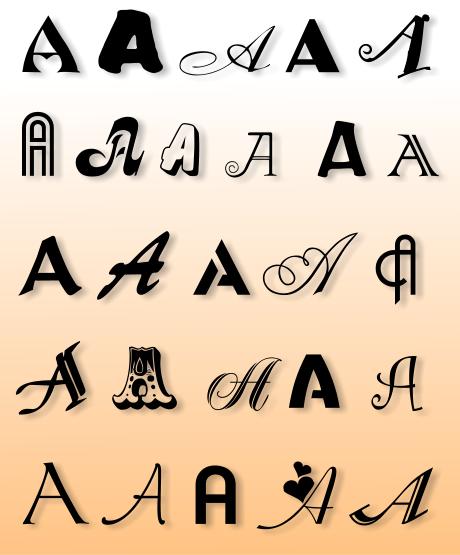Tuesday, August 9: High-Heeled Gumshoe
THE LETTER A
by Melodie Johnson Howe
In The Scarlet Letter, the character Hester Prynne is burdened and shamed by the letter A. But at least she got a little nookie on the side, (as much as Hawthorn and the puritans allowed her) to earn her adulteress label.
I too am burdened by that notorious letter. Not for having a fling but for creating female characters whose names end with it. For instance in my novel I have Nora, Bianca, Vanessa, Celia and Latisha. And of course Diana Poole. Bones, who is copy editing it, was beginning to have trouble keeping them apart.
I know that a writer should use distinctive names for her characters. Names that don’t confuse the reader. Bert and Bart are too similar, unless she’s
going for humor. The writer Bob Crais says don’t name a character Fred, because then you have “Fred said” all through your book.
When I tried to figure out a new name for the charter Vanessa, I immediately came up with the name Cara. But that was too close to Celia. Wait. I could change Celia’s name to Belinda. That’s nothing like Vanessa. I mean Cara. But Belinda could be confused with Bianca. So I’ll call Bianca Karen! That name is too harsh sounding. Not to worry, Bianca can be Vanessa since Vanessa is called Belinda. I mean Cara. And Latisha could be changed to Bianca since I don’t have a charter named Bianca. Or do I?
Names aside, Bones had another problem. He explained that when Diana is in a scene talking in the present she is sometimes making connections with the information she is hearing to another character in the past. That’s confusing because he can’t remember the other character.
My fist response was very rational. I would burn my novel. My second response was more mature. I would tell my husband that he is not a very careful reader. Thank God, I did neither. Holding my tongue and my pages I trudged back into my office. Glaring at my computer, like a baseball player sneering at his bat when he doesn’t make contact, I sat at my desk.
Slowly, my brain began to work. The vengeful writer turned into a thinking one and I realized what I had done. I had used a minor character, her name ending in “a” to convey important information. Diana, when asked thirty pages latter, how she knew this information, remembers the minor character. But since this person is not seen again or talked about the reader isn’t going to remember either.
I don’t have this problem when writing short stories. The truly minor characters should create atmosphere or serve a function that create a sense of reality such as bartender, receptionist, etc. And none of their names, if they even need one, should end in the letter A! And yes, they can convey a piece of information that directs the protagonist because the story is short and the reader will remember it.
To paraphrase the gentleman who said, “The rent is too damn high.” I say, “The novel is too damn long.” I can hardly wait to get back to writing short stories.
Bones just read this column and said it was confusing.





















“My fist response was very rational. I would burn my novel.” Good to start the day laughing, thank you.
You have hit on one of my pet grudges. I get ticked off when an author inflicts me with characters named Tim, Tom, Ted, Tony, etc.
On the other hand this reminded me of an Agatha Christie novel that used that problem brilliantly. I won’t give away the title, but one character was pretending to be someone else and the detective noticed what this reader didn’t, that another character kept saying, let’s say, “Timmy” when the person was supposedly “Tommy.”
I was aware of Rob’s unreasoning prejudice against names for characters in the same story that begin with the same letter of the alphabet.
In my Black Orchid Novella Contest entry, the two central characters are Enola Fowler and Erica Wooding, and Rob raised his flag when he read them. For reasons I shall not go into here, I have a strong reason for these specific names being assigned to the respective characters, and I wasn’t worried about the similarity, because Enola has a long “e” and is accented on the second syllable, while Erica has a short “e” and is accented on the first syllable. But they do look similar, as another of my vetting readers, Nora McFarland, also pointed out. Honi soit qui mal y pense. I ain’t changing the names. Sometimes people have similar seeming names in real life, too.
And let’s face it: Nick wouldn’t be Nick without Nora.
I recently reread the Christie novel that Rob alludes to. He’s right—it’s brilliantly done, especially since the second character, who lets the real name slip, is in a perpetual mental fog, which explains not only why that character slips up, but also why nobody pays attention.
“So I’ll call Bianca Karen! That name is too harsh sounding.”
I disagree. It sounds like “caring” … but it is awfully close to Cara, though, if you named a character that.
I’m so confused.
It’s contagious and mutating! I’m consufed.
I’m so confused I’m changing my name to Melodia
(laughing) That’s Bones’ synthesizer, right?
I’ve give tuppence to know which Christie novel Rob refers to.
Melodie,
What a fun column, and instructive, too.
I’m glad you didn’t go with your “fist response”, and I’m sure so is Bones 😉